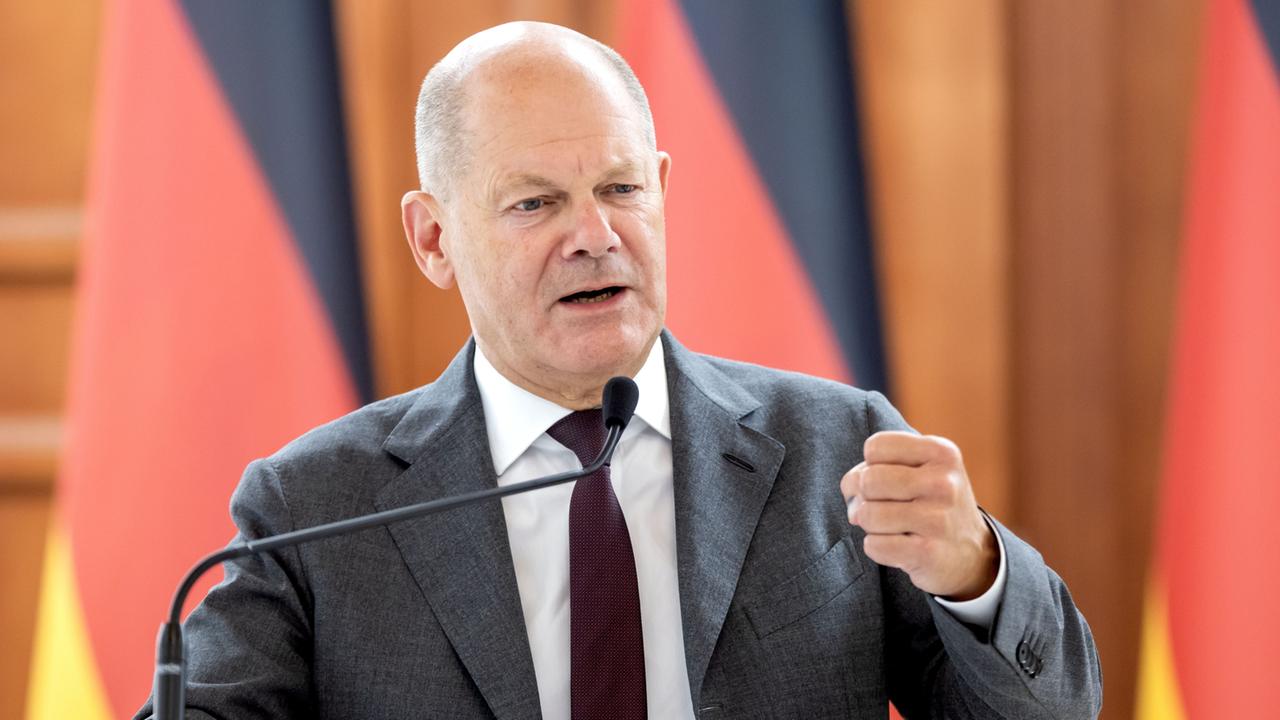During his visit to Moldova, Chancellor Scholz assured Ukraine of comprehensive assistance in the future. He also promised Moldova solidarity, especially with regard to the country's planned accession to the EU.
Chancellor Olaf Scholz has assured Ukraine that Germany will remain its biggest European supporter in the fight against Russia. “Germany will not let up in its support of Ukraine,” promised the SPD politician during his visit to the former Soviet republic of Moldova, which borders Ukraine and also feels threatened by Russia.
“We will support Ukraine for as long as it is necessary. And we will be Ukraine's biggest national supporter in Europe. Only the USA does more as a major world power,” the Chancellor stressed.
“Technically demanding, but politically resolved”
At the weekend, a newspaper report caused irritation, saying that the German government wanted to reduce support for Ukraine because of the strained budget situation. Scholz confirmed that only the sources of money would change. Germany had budgeted more than seven billion euros for Ukraine this year and four billion euros next year.
According to the decision of the G7 states, the country will receive a loan of around 50 billion US dollars (around 45 billion euros) for long-term support, the interest on which will be financed from earnings on frozen Russian state assets. “This is technically challenging, but politically resolved.”
Scholz was cautious about Ukraine's latest offensive in the Russian region of Kursk and the question of whether weapons supplied by Germany were also being used. Ukraine had prepared its military operation there very secretly “and without feedback, which is certainly due to the situation.”
Short trip to Chisinau
Only about four and a half hours were planned for the Chancellor's first trip abroad after his summer vacation, which was overshadowed by the coalition dispute. The Chancellor was already in Moldova for a European summit in June last year. However, his current trip is the first bilateral visit by a German head of government in twelve years.
Politically, the country, which is one of the poorest in Europe, remains divided between pro-European and pro-Russian forces. Russian soldiers have been stationed in the breakaway region of Transnistria, a narrow strip of land in the east of the republic, since the 1990s.
Solidarity with Moldova
Scholz assured the country of solidarity. “Germany stands closely by Moldova's side. We will support the Republic of Moldova to the best of our ability,” he said after his talks with President Maia Sandu and Prime Minister Dorin Recean in the capital Chisinau. He also promised the country, which has a population of just 2.6 million, support for its desired EU accession.
Moldova is counting on continued German support in its transformation process, said President Sandu. She thanked the country for previous assistance, for example to mitigate the energy price crisis or to set up a dual training system. In the fight against disinformation, Germany is helping to make Moldova's institutions and society more resilient.
Migration agreement still in progress
There has not yet been a breakthrough on the migration agreement desired by Berlin. However, Scholz was “confident that we will soon reach an agreement”. There are “no essential, strategic and practical questions that cannot be resolved”, he said.
Sandu stressed that work on the agreement is ongoing and will be completed. The agreement is intended to provide more legal routes for students and skilled workers from Moldova to Germany if, in return, irregular migration is more effectively curbed. In December, Germany had already declared Moldova a safe country of origin in view of the almost non-existent asylum recognition rates.
EU accession as a goal in the constitution?
The pro-European government of Moldova is pushing hard to join the European Union. Germany has already supported Moldova with more than 41 million euros for security since 2018 and is, according to the German government, the fifth largest donor overall. Like Ukraine, the country has been a candidate for EU accession since 2022.
On October 20, at the same time as the presidential election, a referendum will be held on whether EU accession should be enshrined as a goal in the constitution. This would cement the path towards Europe. “Moldova wants to become part of this European family; and the accession process is crucial for our future,” said the pro-European President Sandu.
Christina Nagel, ARD Berlin, currently Chisinau, tagesschau, 22.08.2024 06:56 a.m.




